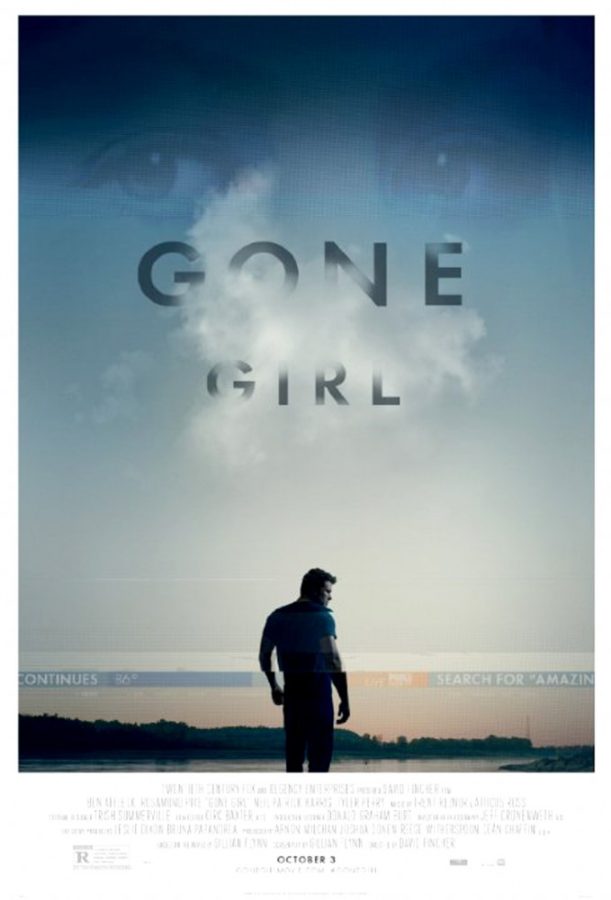With fall officially underway, films pining for awards consideration start to trickle in. Kicking off the 2014 season is the David Fincher-directed “Gone Girl,” which is based on the novel by Gillian Flynn, who also wrote the screenplay.
It should be noted that “Gone Girl” is best experienced without any prior knowledge of the plot. The revelations from Flynn’s script come fast and frequent. This review contains crucial plot details, but here is a bite-sized summation sans spoilers: A stylish, bleak thriller that fires on all cylinders, yet may not be as biting a social satire as it may think.
On the morning of their fifth anniversary, Nick Dunne (Ben Affleck) returns home to find that his wife, Amy (Rosamund Pike), is missing. A broken glass table, blood spattered in the kitchen and a riddle in an envelope are the only clues.
As the investigation gets underway, Nick is unable to answer basic questions about his wife. He doesn’t even know if she has friends.
Through a series of flashbacks from Amy’s perspective, the picture-perfect beginning to their relationship is battered by financial woes brought on by the recession. The metropolitan New York couple must relocate to Missouri, and Nick becomes an ungrateful, abusive couch potato. Well, that’s what Amy’s diary tells the audience.
In a move not unfamiliar to Fincher, the audience is caught between two conflicting accounts of the past, but only one is presented on screen, just like in “The Social Network.” In the cases of Zuckerberg and Saverin and Amy and Nick, we aren’t sure of the exact truth, but the end result is the same. Things were idyllic, but then deteriorated.
Fincher’s signature style is felt in every shot and frame. The washed-out colors are cool and passionless. The film seems to be quietly, steadily plotting.
You can’t mention Fincher without mentioning Trent Reznor and Atticus Ross, who have composed his soundtracks for “The Social Network” and “The Girl with the Dragon Tattoo.” Their score is the most electronically influenced of the three, soft synth lullabies stabbed by distortions and alarms.
Like Zuckerberg, Fincher establishes a lead who’s a likeable jerk. Affleck nails the husband that must act like he gives a damn that the woman he was about to divorce is missing. As Affleck intends, sometimes Nick can effectively fake sincerity, and sometimes he can’t.
Pike is given more to chew on, and she gnaws it to the bone like a stalking carnivore to raw meat. She is superb, and awards season should treat her well.
The film really taps into the vein of the cultural fervor that surrounds these high-profile cases. In today’s society of instantly presumed guilt peddled by the likes of Nancy Grace, Nick isn’t doing much to help his image. He’s not acting distraught enough, and he’s even caught taking a selfie with another woman. Remember when Casey Anthony was seen out partying and getting a tattoo after her daughter went missing?
The hotshot lawyers for these high-profile cases end up becoming minor celebrities in their own right. Nick enlists Tanner Bolt, played with assured charisma by prolific producer and director Tyler Perry.
Neil Patrick Harris also makes a notable, understated appearance as one of Amy’s previous flames. This film is cast to the nines.In her review of the novel, Daily Wildcat writer Mia Moran comments that, once the twists stop at the end, the story loses steam. While I partly agree, it’s necessary and satisfying to see the bleak fallout of the constant betrayals.
However, the ending left me unsatisfied for a different reason. Much has been made of the novel and film deconstructing the American marriage, presenting it as a bleak prison where people compromise and transform themselves into fundamentally different people all for the sake of their partner.
When Nick lists the litany of things his wife has done, a list including lying and murder, Amy simply replies, “That’s marriage.” Film dramatizes and elevates life, surely. Yet, roughly 50 percent of couples divorcing seems to fly in the face of the premise of people sticking it out and being miserable for the sake of keeping up appearances.
Grade: A-
_______________
Follow Alex Guyton on Twitter.









